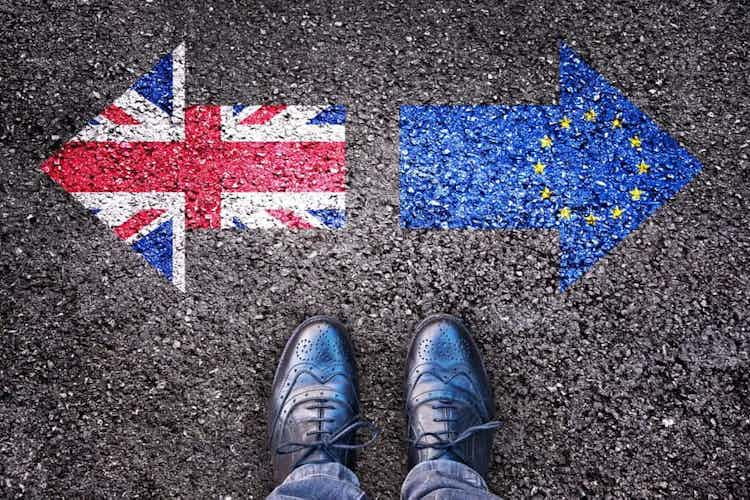A no-deal Brexit would mean that we leave the EU with no formal agreement and would have a vast number of implications.
The deadline for the UK to leave the EU is March 29, 2019, but the chances of a no-deal Brexit are thought to be relatively low.
An immediate exit with no deal would mean that the UK would have no legal obligations to pay a £39 billion divorce bill to the EU. Whilst this would leave a massive hole in the EU budget, it would be an enormous saving for the UK; though it would do great harm to our relationship with the EU.
Furthermore, a no-deal Brexit would see residency rights for EU nationals in the UK potentially disappear overnight, and without any residency rights agreed before our departure, a no-deal Brexit could also affect UK nationals living and working in the EU.
This could affect more than 3.7 million EU citizens currently living in the UK, and 1.3 million UK citizens who live in the EU.
One of the main sticking points at the moment is that the EU wants to impose customs checks along the 300-mile border between Northern Ireland and Ireland. An issue of a no-deal Brexit, which would mean that Northern Ireland leaves the EU, is how to manage 300 checkpoints on the 300-mile border.
Northern Ireland has refused to entertain the idea.
A no-deal Brexit would destroy the Good Friday Agreement unless a compromise could be found.
Unless a trade agreement with the EU can be reached, we would have to trade under the rules of the World Trade Organisation.
Trade tariffs on many industrial products would be 2–3%, but on motor vehicles they would be 10%, and on some agricultural products tariffs are likely to be anywhere between 20–60%.
Customs checks on cross-Channel freight would cause chaos at ports, with traffic jams at Dover predicted to be up to 30 miles long because of the delays involved in checking vehicles coming in and out. There is not the infrastructure or workforce in place to handle such a situation on either side of the channel.
Fresh food deliveries would suffer as produce would be left for days on lorries instead of going straight to market.
If no deal is reached, businesses would lose the rights they currently have which allow them to sell their goods and services to the EU without having to obtain special licences for each individual country.
This could mean that hundreds of thousands of products would require new authorisations and certifications if we wish to continue trading – a bureaucratic nightmare.
The EU has also indicated that unless a deal is reached, UK companies and individuals would be unable to apply for EU grants or contracts.
A no-deal Brexit could also mean that millions of professional qualifications would no longer be recognised in the EU.
If we leave with no kind of deal, UK citizens who have lived and worked in Europe for years may even face losing access to their pensions.
Political analyst Myra Anderson had this to say:
“The possibility of a no-deal Brexit is unlikely, but if it were to happen, it would be nothing short of a disaster. Whilst we would be free to enter into trade deals with other countries, any deals would be years away, and as yet no serious trade deals have been discussed with anyone.
“What people tend to forget is that by being in the EU we are already in the best trade agreement we could ever hope for, and one that could never be bettered.
“To be honest, the whole idea of Brexit without an excellent trade deal with the EU would be financial suicide for the UK.”






